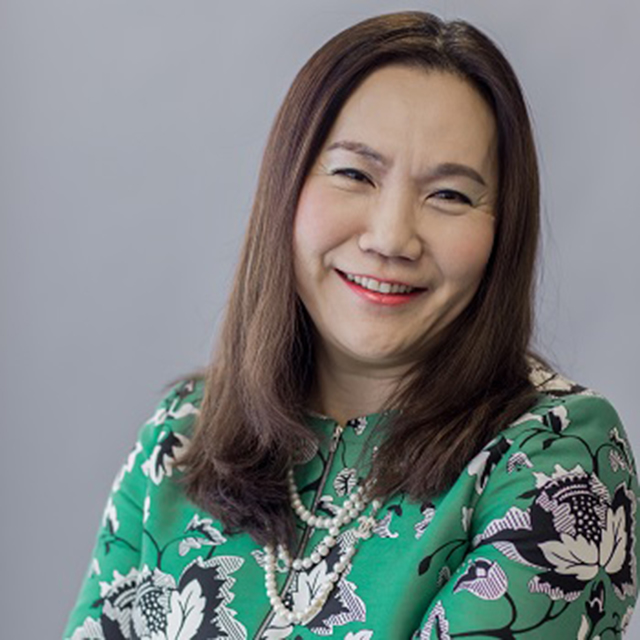
Singapore
Lily Low
NUS EMBA Class of 2000
Chief Financial Officer
Envision Digital International Pte Ltd
Lily has seen her career traverse both East and West in various roles. She worked in the renewables industry in China as Chief Financial Officer (CFO) and spent some 19 years with IBM, including a leadership role in the channel partners unit. These days, Lily is also an independent director of Standard Chartered Bank Singapore.
Lily was able to quickly transfer between regions, thanks to the EMBA programme’s wide range of management and corporate skills that enabled her to be a versatile leader. We met her to learn how the EMBA programme shaped her life.
What made you embark on your EMBA journey with NUS Business School?
Before the EMBA, I was reflecting on the skills I needed going forward considering I had worked for ten years. I wanted to learn, upskill and go for bigger things.
As I aspired to become a CFO, I felt the need to expand my skill set and be more engaged in the business long-term. Hence, it was important for me to make a transition from audit to areas like corporate finance, strategy and risk management. The NUS EMBA was the ideal springboard I needed to be a better partner to the CEO.
Since my EMBA, I have worked on the business side as the general manager for the channel partners group at IBM. I have also worked as CFO at Chinese firms. The EMBA programme makes me more versatile, flexible, and open due to the breadth of skills I acquired.
What is one enduring memory of your time at NUS Business School?
We had a lot of project discussions in the evenings, and what impressed me was our classmates, who came from different work disciplines and the questions they raised.
You may think this is so obvious, but no, because they look at issues differently. We had a very good mix of classmates from banks to non-profit organisations like Citi, World Vision and Motorola. So they give a very different perspective on everything. Likewise, I learned a lot from my classmates on marketing because I’m not a marketing person.
I have also realised that while our experience shape our perspective, everything changes when we look at it from another angle. So, we should start looking at issues from the perspective that we are never right. This helps me to be open-minded whenever I go into a situation. I need different input from different functions and business units because that’s how you can make the decision-making more complete and from an organisation standpoint.
What advice would you give those just starting their EMBA journey?
Ensure you have worked for about ten years before taking an EMBA so you can effectively contribute during discussions and get a meaningful exchange of ideas and perspectives. This way, you can bring value to the classroom and even yourself during the interactions with the experiences and perspectives.